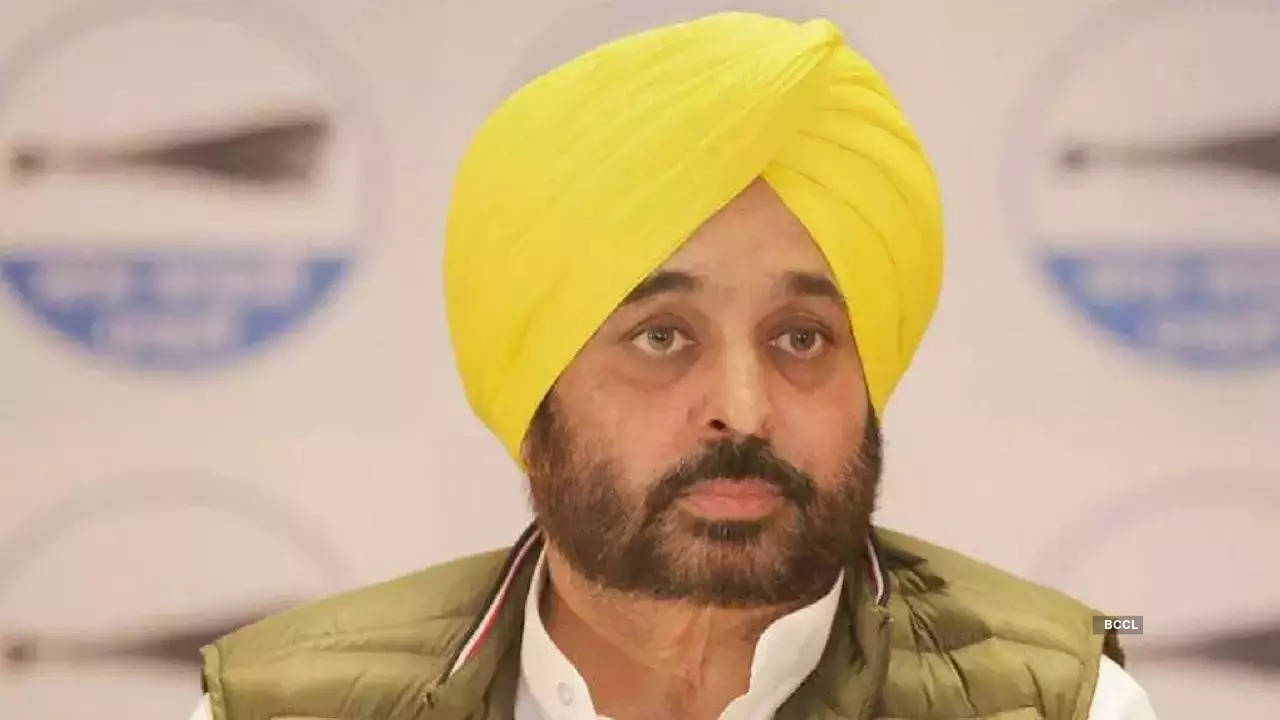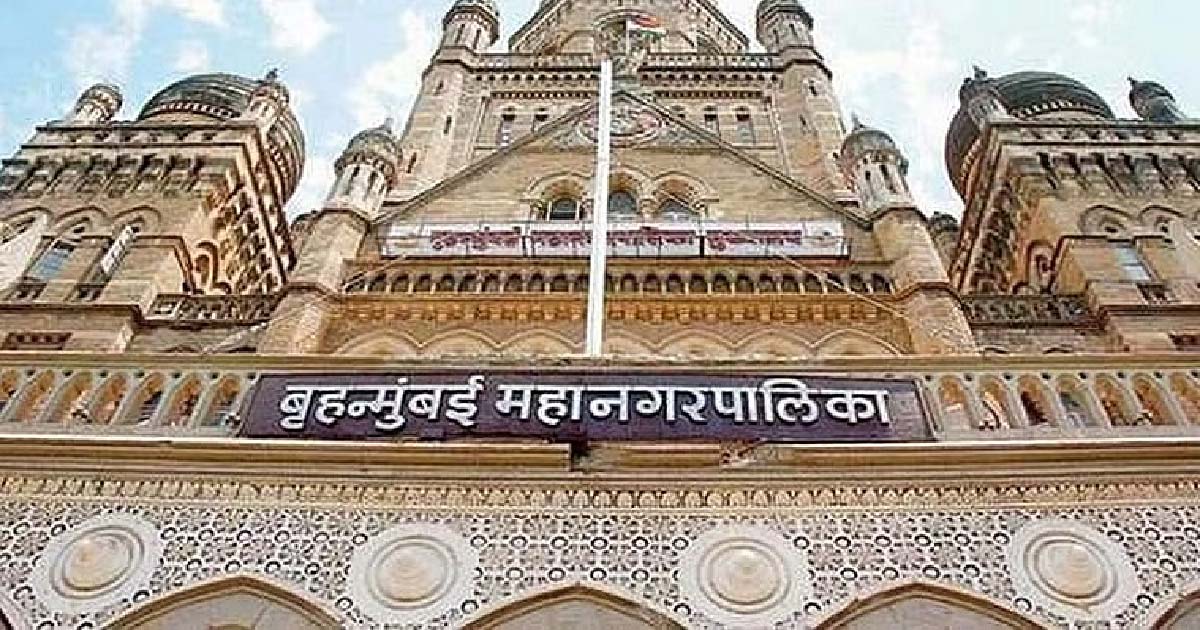National News
Punjab Revenue Staff Goes On Indefinite Pen-Down Strike Despite ESMA Warning

Chandigarh: Sticking to their stand, the Punjab revenue staff on Friday went on an indefinite pen-down strike despite the warning of Chief Minister Bhagwant Mann and the invocation of the East Punjab Essential Services (Maintenance) Act (ESMA) barring all the government employees from leaving their place of posting till further orders.
Over 2,000 employees under the aegis of the Revenue Patwar Union and Revenue Kanungo Association, had called for the said strike from Friday over an alleged corruption case registered against a patwari and a kanungo in Sangrur district recently and the CM had warned them that they could lose their job and the state Aam Aadmi Party (AAP) government had invoked ESMA.
Notably, the special chief secretary, the revenue department, K A P Sinha had on Friday held – after invoking ESMA – that any violation of the order shall attract strict penal provisions under ESMA – which could lead to dismissal from service and imprisonment for up to three years.
ESMA order highlights urgent need for flood relief & essential services
Sinha’s order had also stated that due to floods, immediate disbursement of relief material was needed for the affected population and that the services of revenue officials including patwaris, kanungos, and circle revenue officials at the deputy commissioners offices were required for the maintenance of essential supplies and relief material, disbursal of crop compensation to the farmers, etc.
However, according to media reports, the employees’ leaders held that they would only do the flood-related work in the patwar circle areas where they were posted and not any other areas where circles where patwaris’ posts were lying vacant. For the record, there are said to be about 4,700 revenue circles while patwaris are posted in about 1,500 circles. They said that the government was forcing them to work more and was not willing to fill the vacancies. They further held they were not going back on their decision on the indefinite strike whether the government invoked ESMA or any other provisions.
They had also announced they would also move the Punjab and Haryana High Court against the state government’s decision to invoke the ESMA. Meanwhile, it may also be recalled that the DC office employees association has also threatened to observe a pen-down strike from September 11 to 13 to press for their various demands.
Maharashtra
Mumbai Civic Healthcare Goes Digital: BMC Launches Health Chatbot To Improve Access, Transparency And Efficiency

Mumbai, Dec 15: In a major step towards strengthening digital public healthcare, the Brihanmumbai Municipal Corporation (BMC) on Monday launched a health chatbot aimed at improving accessibility, transparency, and efficiency of healthcare services for citizens.
The digital service was inaugurated by State Minister for Information Technology and Cultural Affairs and Mumbai Suburban District Guardian Minister Ashish Shelar. The initiative marks another milestone in BMC’s ongoing efforts to integrate technology with civic health services.
As part of its digital transformation drive, the health chatbot will provide citizens with easy access to verified health-related information, including disease awareness, preventive care, public health campaigns, and details of nearby healthcare facilities. The chatbot is available on the mobile number 9892993368.
BMC Commissioner and Administrator Bhushan Gagrani said the initiative aligns with the civic body’s vision of making public health information easily accessible through digital platforms. Technology-driven services, he noted, will save citizens’ time and play a crucial role during healthcare emergencies.
Through the chatbot, citizens can access information on online OPD appointment registration, health certificates, licensing procedures, birth and death certificates, marriage registration, disability certificates, and maternity home licences. An online registration facility for health centres is expected to significantly reduce waiting times and improve convenience.
In the coming months, the chatbot will also provide details of state and central government health schemes. The BMC further plans to launch a dedicated healthcare website, along with OPD and bed-availability dashboards, to simplify access to health services and real-time information for Mumbai’s residents.
Crime
Mumbai Crime: TV Actor Anuj Sachdeva Assaulted Over Parking Dispute In Goregaon Housing Society; FIR Registered

Mumbai, Dec 15: Actor Anuj Premchand Sachdeva, 40, was allegedly assaulted with a stick by another society member, Pradeep Singh, after the actor complained about a car being wrongly parked and later over Singh being angered by his dog barking, on the night of December 14 at Harmony Mall Residency in Goregaon West.
Following the incident, Sachdeva filed a complaint at the Bangur Nagar police station, and on Monday, an FIR was registered against Pradeep Singh. The incident caused a stir after the actor shared a video of the assault on social media.
According to the FIR, the actor resides in flat number 701 of Harmony Mall Residency, located on Link Road in Goregaon West. On Sunday, at around 10.30 pm, Sachdeva was walking his dog, named Simba, in the society’s parking area. At that time, he posted a photograph of a car parked out of a parking slot in the society’s WhatsApp group.
While the actor and his friend, Priyanka Pereira, were talking around 10.45 pm, an enraged resident, identified as Pradeep Singh, arrived at the spot and began arguing with him. Singh reportedly told Sachdeva that he would not remove his car and challenged him to do whatever he wanted.
During the argument, the actor’s dog barked, which further angered Singh. He allegedly picked up a wooden stick from the watchman and attempted to hit the dog. However, Pereira moved the dog away.
In a fit of rage, the accused then allegedly assaulted Sachdeva with the stick, striking him on the head, back, and right leg, causing injuries. Singh is also accused of threatening Pereira by saying, “You are a woman, stay at home,” and threatening to kill the actor.
Sachdeva recorded the attack on his mobile phone and later shared the video on social media. The altercation stopped after the society’s watchman intervened, following which the accused fled the scene in his car. The complaint further states that Singh threatened that the police could do nothing to him.
After receiving treatment at a private hospital, Sachdeva approached the police, who registered an FIR against Singh under Sections 118(2) (voluntarily causing hurt or grievous hurt by dangerous weapons or means) and 351(3) (criminal intimidation) of the Bharatiya Nyaya Sanhita.
The actor also uploaded the video on Instagram and stated, “I am posting this evidence before this person tries to do any damage to me or my property. He tried hitting my dog and me with a rod for notifying the society group regarding his car, which was parked in the wrong place in the society parking lot in Harmony Mall Residency, Goregaon West. This person is from A Wing, flat 602. Kindly share this with people who can take action. I am bleeding from my head.”
Crime
ED seizes Rs 79 crore properties of Punjab firm involved in water pollution

Jalandhar, Dec 15: In a money laundering probe related to an environmental crime, the Enforcement Directorate attached properties, including land, building and plant and machinery, worth Rs 79.93 crore belonging to a Punjab-based company involved in water pollution, an official said on Monday.
The Enforcement Directorate (ED), Jalandhar Zonal Office, provisionally attached the immovable properties of Malbros International Pvt Ltd on Saturday in the money laundering investigation related to environmental crime, under the provisions of the Prevention of Money Laundering Act (PMLA), 2002.
The ED initiated an investigation based on a criminal complaint filed by the Punjab Pollution Control Board against Malbros International for violating the provisions of the Water (Prevention and Control of Pollution) Act, 1974, by injection of untreated wastewater through reverse boring into deep aquifers.
The ED investigation revealed that the company (with its industrial unit at village Mansoorwal, Tehsil Zira, District Ferozepur) was involved in the generation and acquisition of Proceeds of Crime by deliberately causing pollution of groundwater by persistently and covertly injecting untreated effluents into deep aquifers through reverse boring.
The company was also accused of repeatedly discharging wastewater onto land, drains, and an adjacent sugar mill.
Its daily functioning involved persistent illegal discharge of untreated effluents into land and groundwater, causing large-scale irreparable ecological damage in the form of water pollution and consequent health hazards, causing crop loss, cattle deaths and serious health impacts for residents of villages around its premises, said a statement.
Earlier, searches were conducted at six locations on July 16, 2024, and an amount of Rs 78.15 lakh cash was seized from the premises of Malbros International Pvt Ltd and its Directors under the provisions of Section 17 of the PMLA, 2002.
In a separate case, the Enforcement Directorate (ED), Shimla, teams conducted search operations at eight premises located in Himachal Pradesh and Punjab on Saturday in connection with an ongoing investigation into a large-scale fake/fictitious cryptocurrency-based Ponzi/Multi-Level Marketing (MLM) scam.
The perpetrators of the scam allegedly duped lakhs of investors belonging to the states of Himachal Pradesh and Punjab to the tune of Rs 2,300 crore
The search operations conducted by the ED resulted in the freezing of three lockers and bank balances/fixed deposits totalling Rs 1.2 crore.
The ED also recovered incriminating documents relating to investments made in numerous immovable properties, including benami properties, which were acquired by the accused individuals by utilising proceeds of crime (PoC) generated through the Ponzi scheme.
-

 Crime3 years ago
Crime3 years agoClass 10 student jumps to death in Jaipur
-

 Maharashtra1 year ago
Maharashtra1 year agoMumbai Local Train Update: Central Railway’s New Timetable Comes Into Effect; Check Full List Of Revised Timings & Stations
-

 Maharashtra1 year ago
Maharashtra1 year agoMumbai To Go Toll-Free Tonight! Maharashtra Govt Announces Complete Toll Waiver For Light Motor Vehicles At All 5 Entry Points Of City
-

 Maharashtra1 year ago
Maharashtra1 year agoFalse photo of Imtiaz Jaleel’s rally, exposing the fooling conspiracy
-

 National News1 year ago
National News1 year agoMinistry of Railways rolls out Special Drive 4.0 with focus on digitisation, cleanliness, inclusiveness and grievance redressal
-

 Maharashtra1 year ago
Maharashtra1 year agoMaharashtra Elections 2024: Mumbai Metro & BEST Services Extended Till Midnight On Voting Day
-

 National News1 year ago
National News1 year agoJ&K: 4 Jawans Killed, 28 Injured After Bus Carrying BSF Personnel For Poll Duty Falls Into Gorge In Budgam; Terrifying Visuals Surface
-

 Crime1 year ago
Crime1 year agoBaba Siddique Murder: Mumbai Police Unable To Get Lawrence Bishnoi Custody Due To Home Ministry Order, Says Report












